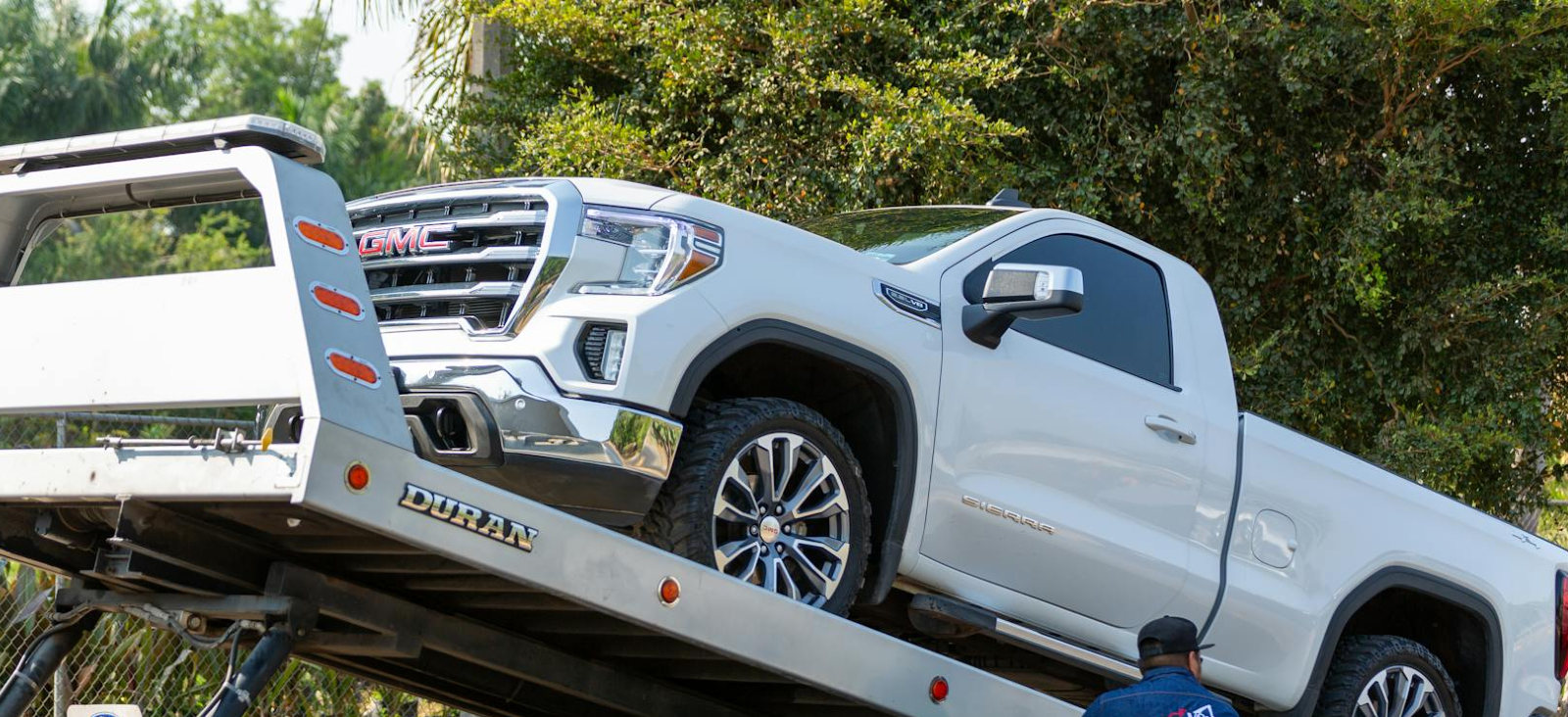Who Gets the Insurance Check When a Car is Totaled in an Accident?

You’ve been involved in a serious car accident, and the insurance company has declared your vehicle a total loss. As you deal with this stressful situation, one of the most pressing questions on your mind may be, “Who gets the insurance check when a car is totaled?”
Understanding the ins and outs of total loss payouts is important for any car owner, as the knowledge can help you make informed decisions and protect your financial interests.
What Does It Mean When an Insurer Declares a Total Loss?
A vehicle is a total loss when the cost of repairs exceeds a certain percentage of the car’s actual cash value (ACV). This percentage varies by state and insurance company, but typically, ACVs range from 60% to 80%.
Insurance adjusters consider the following factors when calculating total loss claims:
- Make, model, and year of your vehicle.
- Mileage and overall condition of your car before the accident.
- Market value of similar vehicles in your area.
Once your insurance company calculates the ACV and compares it to the estimated repair costs, it will decide whether to declare your car unrecoverable.
Factors That Influence Who Receives the Insurance Check
Several key factors come into play when determining who gets the insurance check for a totaled car.
The most significant considerations include:
- Car Ownership Status: Whether you own your car outright, have a loan, or lease your vehicle will impact who receives the insurance payout.
- Loan or Lease Agreements: If you have a car loan or lease, your lender or leasing company has a financial stake in your vehicle and may be entitled to a portion of the insurance check.
- Gap Insurance: If you have gap insurance, it can help cover the difference between your car’s ACV and the amount you still owe on your loan or lease.
Let’s explore each of these scenarios in more detail.
Scenario 1: You Own Your Car Outright
An insurance check for a totaled vehicle will typically be sent to you if you own your car outright and have no outstanding loans or leases.
The process usually involves the following steps:
- The insurance company determines your car’s ACV and subtracts any applicable deductibles.
- It issues a check for the remaining amount, which you can use to purchase a new vehicle or for other purposes.
- Sometimes, you can keep your totaled car for salvage value, but the insurer will subtract the value from your payout.
It’s important to note that while owning your car outright simplifies the payout process, you’ll still need to work closely with your insurance company to ensure you receive a fair settlement.
Scenario 2: You Have a Car Loan or Lease
The insurance payout process becomes more complex if you have a car loan or lease and your vehicle is totaled. In most cases, the insurance company will prioritize paying off your lender or leasing company first, as they have a legal claim to your vehicle.
Here’s what you can expect:
- The Insurance company determines your car’s ACV and issues a check for that amount (minus any deductibles) to your lender or leasing company.
- You receive the remaining balance if the insurance payout is more than what you owe on your loan or lease.
- If the payout is less than what you owe, you’ll be responsible for paying the difference out of pocket unless you have gap insurance.
This situation can be particularly stressful if you owe money on a car you can no longer drive. That’s where gap insurance comes in.
The Role of Gap Insurance in Total Loss Payouts
Gap insurance is an optional coverage that can be invaluable if you have a car loan or lease. In a total loss, gap insurance covers the difference between your car’s ACV and the amount you still owe on your loan or lease
Here’s how it works:
- Your regular insurance will pay the ACV to your lender or leasing company when your totaled car’s ACV exceeds your outstanding loan or lease balance.
- Gap insurance will then cover the “gap” between the ACV and what you still owe, ensuring you’re not financially burdened.
- Sometimes, your lender or leasing company may require you to carry gap insurance as part of your financing agreement.
While gap insurance adds to your overall car insurance costs, it can provide peace of mind and financial protection in the event of a total loss.
Filing an Insurance Claim After a Total Loss
If you’re dealing with a totaled vehicle in Central Illinois, there are several steps you can take to approach the insurance claim process and protect your interests.
Contact Your Insurance Company Immediately
Promptly notify your insurance provider of the accident and provide them with any necessary documentation, such as a police report and photos of the damage.
Review Your Insurance Policy
Familiarize yourself with insurance coverage, deductibles, and additional protections like gap insurance.
Document All Communication
Keep detailed records of all correspondence with your insurance company, including emails, phone calls, and in-person meetings.
Negotiate Your Settlement
Don’t hesitate to negotiate when you believe your insurance company’s payout offer is too low. Provide evidence to support your case, such as comparable vehicle values and repair estimates.
Consider Legal Representation
If you need help reaching a fair settlement or need guidance working the claims process, consider consulting an experienced car accident attorney in Central Illinois.
Remember, while the insurance claim process can be stressful, you don’t have to face it alone. Onward Injury Law’s Central Illinois attorneys are here to help you understand your rights and fight for the settlement you deserve.
Special Considerations for Central Illinois Residents
Central Illinois residents should be aware of state-specific insurance regulations and resources that can impact their total loss payout.
- Illinois requires all drivers to carry a minimum of $25,000 in property damage liability coverage, which can help cover the cost of a totaled vehicle if you’re not at fault for the accident.
- If your vehicle is totaled and you’re not at fault, you may be entitled to a rental car while your insurer processes your claim.
- Several organizations in Central Illinois, such as the Illinois Department of Insurance and the Illinois State Bar Association, offer resources and support for those navigating the insurance claim process.
By understanding your state’s insurance scene and knowing where to turn for help, you can better protect your rights and interests after a total loss accident.
Frequently Asked Questions
Will my insurance premiums go up after a total loss?
Not necessarily. If the accident wasn’t your fault, your rates may not increase. However, your premiums may increase if you have a history of accidents.
What if I disagree with my insurance company’s valuation of my totaled car?
If you believe your insurance company has undervalued your vehicle, you can negotiate your settlement by providing evidence such as comparable vehicle values and repair estimates. If negotiations stall, consider seeking legal advice.
Can I keep my totaled car?
Sometimes, you may have the option to keep your totaled vehicle for salvage value. However, the insurer will deduct this amount from your payout, and your car will be issued a salvage title, making it difficult to insure and sell in the future.
Don’t Let a Totaled Car Derail Your Life: Protect Your Rights
Dealing with a totaled vehicle is a confusing experience, but understanding who gets the insurance check and what factors influence the payout process can help you in this challenging time.
Remember to review your insurance policy, document all communication with your insurance company, and don’t hesitate to negotiate your settlement.
If you need guidance or representation after a total loss accident in Central Illinois, the attorneys at Onward Injury Law are here to help.
Schedule a free consultation and case evaluation to discuss your options and learn more about protecting your rights after a car accident. With the proper support and knowledge, you can move forward confidently and return to recovery.



